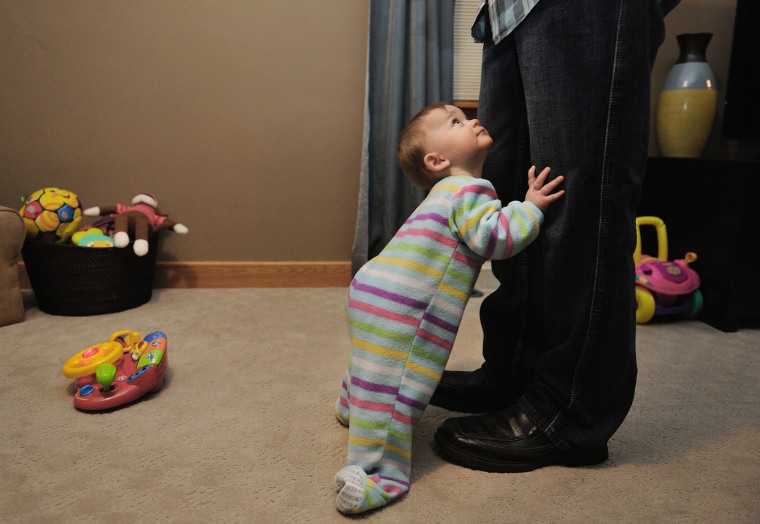Fathers who sip pretend tea, play school alongside stuffed animals or act out storybooks with their toddlers are doing more than establishing their "fun Dad" image. They may be giving kids an academic boost that lasts at least through elementary school, a new study of low-income families suggests.
“It’s important how we play with our kids,” says lead author Gina Cook, a research assistant professor at Utah State University’s department of family, consumer and human development. “It does have long-term outcomes.”
Stimulating play might include a game of “let’s pretend” or talking about how a game or book relates to a child’s own experiences, Cook says.
Relatively little research has looked at the impact of fathers’ contributions to children’s development or academic performance, she and her coauthors write in an all-dad issue of the journal Family Science.
Until the past decade or so, Cook says, fathers simply weren’t home as much as mothers. “In a lot of research, we just go in and talk to and observe the mothers.”
But this study looked at both parents. Her new study focused on 299 low-income children. Some lived with both biological parents, while others lived with only their mother or with their mother and a stepdad.
When the children were 2, the researchers videotaped each parent playing with his or her child. The scientists then followed up to see how the kids were doing at age 3 and in fifth grade.
Toddlers whose parents engaged in "stimulating play" like pretend games ended up with better grades by the time they reached fifth grade. This was true for both mothers and fathers -- but only for the fathers who lived with their children.
The biological dads who didn’t live with their kids were just as good at stimulating their brains during play as the other dads. But, Cook says, perhaps dads who didn’t live with their kids weren’t around enough to make as much of an impact on their brain development.
Cook emphasizes that her study focused only on low-income families, so she doesn’t know if the findings also apply to other socioeconomic groups. What is clear, though, she says, is that parents shouldn’t just sit there when playing with their young kids. So, the next time your toddler begs for "just one more" game of tea party or horsey -- it may be an investment in their academic future.
Do you enjoy pretend play with your children?
